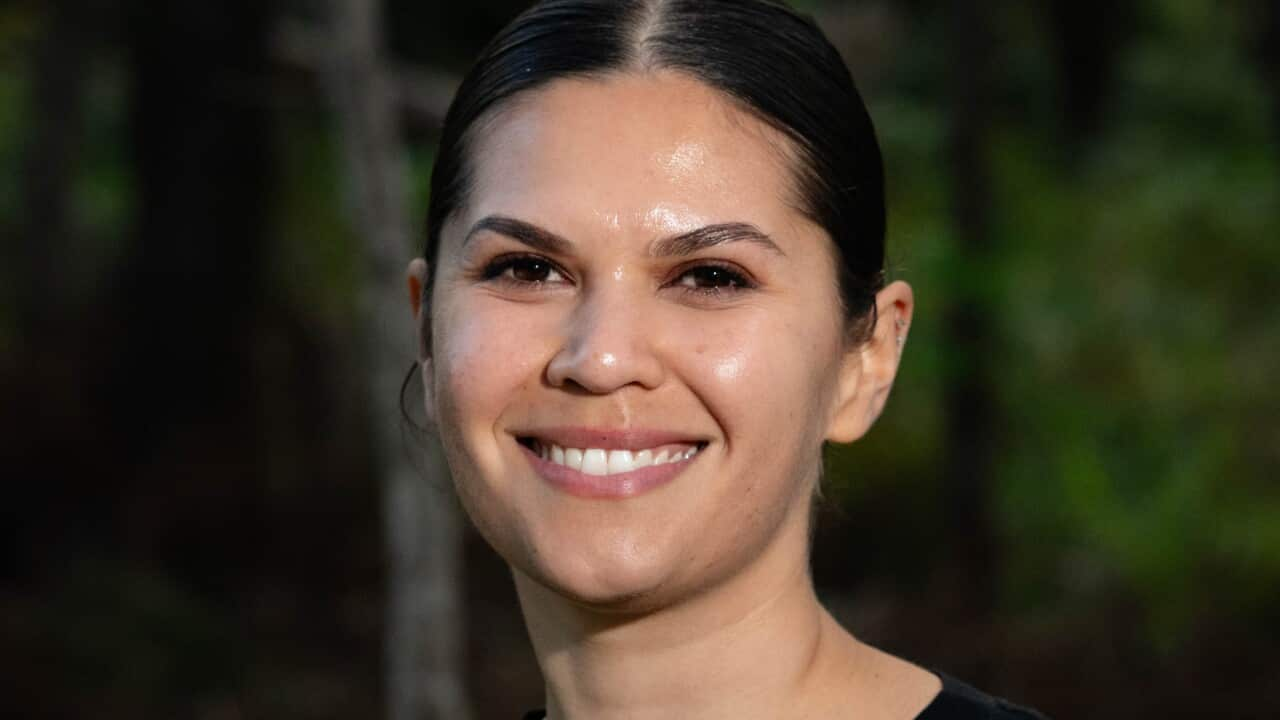As a child, the songstress was more used to treading the sand than the stage.
Emily spent her younger years on Groote Eylandt off the coast of the Northern Territory - one of the most remote areas of the country.
"So growing up on Groote was just a life full of fishing, camping, a lot of beach parties, a lot of family gatherings. Very sacred ceremonies and cultural reflections, which was really cool - very easy-going and island life," she tells The Point.
Her family moved to Brisbane when she was six in search of more opportunities, but often returned to the island.
It was during one of those visits, while home for a funeral, that Emily would have one of her most formative experiences.
"You have fires sitting leading up to where the burial grounds are, and that's to smoke the spirit on the way... to pass them onto the next life," she explains.
"And I remember walking behind with my mum and just hearing all the voices of the men always singing and stomping, and singing and stomping, and I just found that so enchanting and how beautiful it was that they sang, and it was very captivating."
Emily picked up her first instrument, the violin, soon after.
They cornered her in the bathroom and they spat on her face and said all these nasty and terrible things.
Fast forward to 2017 and the 20-year-old has mastered six instruments, released a debut EP and made her mark as one of the country's budding singer/songwriters.
Amongst her growing stable of songs, there's one that stands out as a personal favourite: it's called 'Hey Love', and tells the true story of when her mother was racially abused at boarding school.
"She was in the bathroom and went to the toilet and she came out and there were five or six non-Indigenous women standing there waiting for her," Emily says.
"And because they found out that her mum was full Aboriginal... they cornered her in the bathroom and they spat on her face and said all these nasty and terrible things. And then mum stood there and she didn't say anything back, she took it... she couldn't stand up for herself at the time."
Despite the harrowing story, Emily chooses to focus on what she sees as her mother's enduring strength and resilience.
"It just made her stronger to stand and be proud of who she is and where she comes from, and I think that's one thing she always drilled in my head," Emily says.
"It's a negative thing that's happened, but it's a positive thing that's come out of it."
For Emily, music has always been a way to keep strong in her culture - particularly as a child adjusting to city life in Brisbane.
"I spoke fluent Anindilyakwa when I was young, but when I came to Brisbane... I stopped talking it. I felt very shamed and embarrassed because all the other kids, they'd be like 'ew what are you talking about, what are you saying?'."
Now she performs a handful of songs in her native language.
"I love getting feedback from Elders, like when they come up to me and they say how proud they are of me, it just makes my heart so happy."
With a new single, and a US performance on the horizon, Emily's career is well and truly blossoming, but her roots will always be grounded in family and culture.
"I'm very proud of who I am and what I represent. I'm not only doing this for my culture, I'm doing this for the young women and young men who are the next generation to come and show them that there is no shame in wanting to show your culture and to preserve it. Because at the end of the day that's what I'm trying to do - I want to archive my language for our future generations so they always have it there, and what better way to do it other than music".










